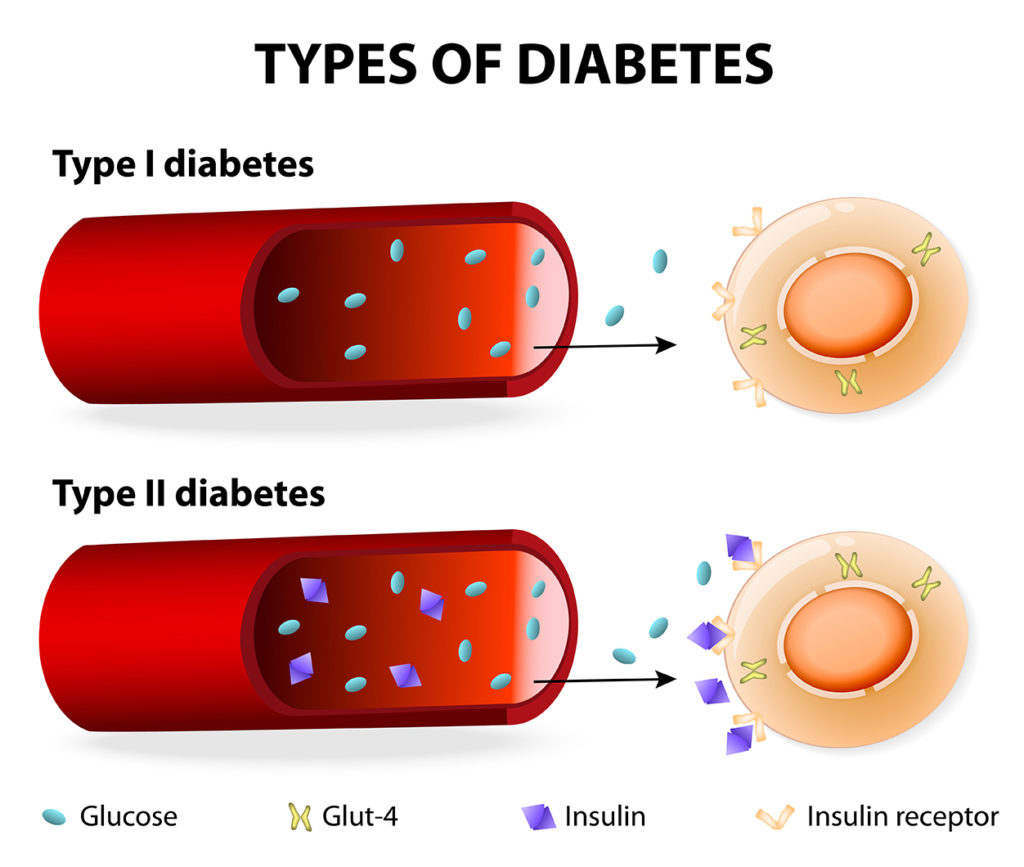
Diabetes is a prevalent health condition that affects individuals worldwide, leading to various complications if not managed effectively. In this blog, we delve into the crucial topic of diabetes prevention and underscore the significance of adopting preventive measures to mitigate the risk of developing diabetes. As the saying goes, "Prevention is better than cure," taking proactive steps now can significantly reduce the likelihood of facing diabetes in the future.
Understanding Diabetes
Type 1 Diabetes
- Diabetes is a chronic condition that affects how your body turns food into energy. Type 1 diabetes is an autoimmune disease where the body attacks the insulin-producing cells in the pancreas, leading to little to no insulin production.
Type 2 Diabetes
- On the other hand, type 2 diabetes occurs when the body becomes resistant to insulin or doesn't produce enough insulin. Various risk factors can contribute to the development of diabetes. These include genetics, unhealthy eating habits, a sedentary lifestyle, obesity, high blood pressure, and high cholesterol levels.
Knowing about these risk factors is really important to stop diabetes from happening. If you don't control diabetes the right way, it can cause big problems for your health. It might lead to issues like heart trouble, stroke, kidney problems, eyesight loss, and nerve damage.
To keep these problems away, it's important to control your blood sugar with medicine, eat healthy, work out often, and keep an eye on it. Learning about how to stop diabetes and its different types, risks, and effects on health is key.
How to Prevent Diabetes Naturally
- Balanced Diet: Adopting a balanced and nutritious diet is key to preventing diabetes naturally. Focus on consuming plenty of fruits, vegetables, whole grains, and lean protein to keep your blood sugar levels stable. Avoid processed foods high in sugar and unhealthy fats to lower the risk of developing diabetes. Choose sugar-free foods or foods suitable for diabetes.
- Regular Exercise: Incorporating physical activity into your daily routine is crucial for diabetes prevention. Aim for at least 30 minutes of moderate exercise most days of the week, such as walking, jogging, cycling, or any activity you enjoy. Exercise helps control weight, improve insulin sensitivity, and reduce the risk of diabetes.
- Stress Management: Managing stress is important in preventing diabetes naturally. Chronic stress can lead to elevated blood sugar levels, so finding healthy ways to cope such as meditation, yoga, or deep breathing techniques can be beneficial.
- Adequate Sleep: Getting enough sleep each night is essential for overall health and can help regulate blood sugar levels, thus contributing to diabetes prevention.
- Avoid Unhealthy Habits: Avoid smoking and excessive alcohol consumption as they not only increase the risk of diabetes but also have detrimental effects on overall health. Making small, sustainable lifestyle changes can significantly help in preventing diabetes and improving well-being.

Dietary Changes to Prevent Diabetes
Making positive changes to your diet can play a crucial role in preventing diabetes. By incorporating a balanced and nutritious diet, you can manage your blood sugar levels and reduce your risk of developing diabetes. Here are some dietary changes that can help in preventing diabetes:
- Focus on Whole Foods: Opt for whole grains, fruits, vegetables, lean proteins, and healthy fats. These nutrient-dense foods provide essential vitamins and minerals while keeping your blood sugar levels stable. You can also try specific diabetic flours that cater specifically to diabetes patients.
- Limit Added Sugars: Reduce the consumption of sugary beverages, processed snacks, and desserts. High sugar intake can lead to insulin resistance and increase the risk of developing diabetes.
- Control Portion Sizes: Be mindful of your portion sizes to avoid overeating, which can contribute to weight gain and insulin resistance. Use smaller plates and pay attention to hunger cues to prevent overconsumption.
- Include Fiber-Rich Foods: Fiber helps regulate blood sugar levels and promotes digestive health. Incorporate foods like legumes, whole grains, fruits, and vegetables to increase your fiber intake.
- Choose Healthy Fats: Opt for sources of unsaturated fats, such as avocados, nuts, seeds, and olive oil. These fats can help improve insulin sensitivity and reduce inflammation in the body.
By making these dietary changes and adopting a healthy eating pattern, you can effectively prevent the onset of diabetes and promote overall well-being. Remember to consult with a healthcare professional or a dietitian for personalized recommendations based on your individual needs.
Preventing Diabetes with Family History
1. Adopt a Healthy Lifestyle:
- Maintain a balanced diet rich in fruits, vegetables, whole grains, and lean proteins.
- Engage in regular exercise for at least 30 minutes a day.
2. Monitor Blood Sugar Levels:
- Regularly monitor blood sugar levels to catch warning signs early.
3. Stay Informed:
- Educate yourself about the risk factors and symptoms of diabetes.
4. Proactive Health Decisions:
- Make informed decisions regarding your health to reduce the impact of genetic risk factors.

To Conclude
In summary, it's clear that taking steps early on to avoid diabetes is important for your health. By making healthy choices and watching out for risk factors, you can lower your chances of getting diabetes. We've talked about different ways to naturally prevent diabetes, like eating well, staying active, managing stress, getting enough sleep, and dropping bad habits. These simple but powerful steps can really help stop diabetes from starting.
Also, if diabetes runs in your family, it's crucial to know that you might have a higher risk due to genetics. By being proactive and getting regular check-ups, as well as changing your lifestyle as needed, you can lessen the impact of family history on your diabetes risk.
In short, the key to preventing diabetes is being aware, learning, and taking action. By following the tips given in this blog, you can take control of your health, lead a healthier life, and reduce your chances of getting diabetes. Remember, preventing the problem is much better than dealing with it after. Let's look after ourselves and make smart choices to prevent diabetes.
Frequently Asked Questions (FAQs)
1. How can I prevent diabetes through diet and lifestyle changes?
- Eating a balanced diet rich in fruits, vegetables, whole grains, and lean proteins.
- Maintaining a healthy weight through regular physical activity.
- Limiting the consumption of sugary drinks and processed foods high in added sugars and unhealthy fats.
2. Why is physical activity important in preventing diabetes?
- Resistance training may turn out to be helpful in maintaining blood sugar levels and improve insulin sensitivity
- Regular exercise helps improve insulin sensitivity and reduces the risk of developing type 2 diabetes.
- Physical activity can help control blood sugar levels and maintain a healthy weight.
- Aim for at least 150 minutes of moderate-intensity exercise per week.
3. Is it important to monitor blood sugar levels even if I don't have diabetes?
- Regular blood sugar monitoring can help detect early signs of insulin resistance and prediabetes.
- Monitoring blood sugar levels can encourage lifestyle changes to prevent diabetes onset.
- Follow your healthcare provider's recommendations for regular blood sugar checks.
4. What role does stress management play in preventing diabetes?
- Chronic stress can contribute to elevated blood sugar levels and insulin resistance.
- Implement relaxation techniques such as deep breathing, meditation, and yoga to reduce stress.
- Prioritize self-care practices to improve mental well-being and overall health.
5. Are there any specific foods or nutrients that can help prevent diabetes?
- Incorporate foods rich in fiber, such as whole grains, legumes, and leafy greens, to help regulate blood sugar levels.
- Omega-3 fatty acids found in fatty fish like salmon and walnuts may reduce the risk of developing type 2 diabetes.
- Consider adding cinnamon, turmeric, or green tea to your diet as they have shown potential benefits in managing blood sugar levels.



.png)


